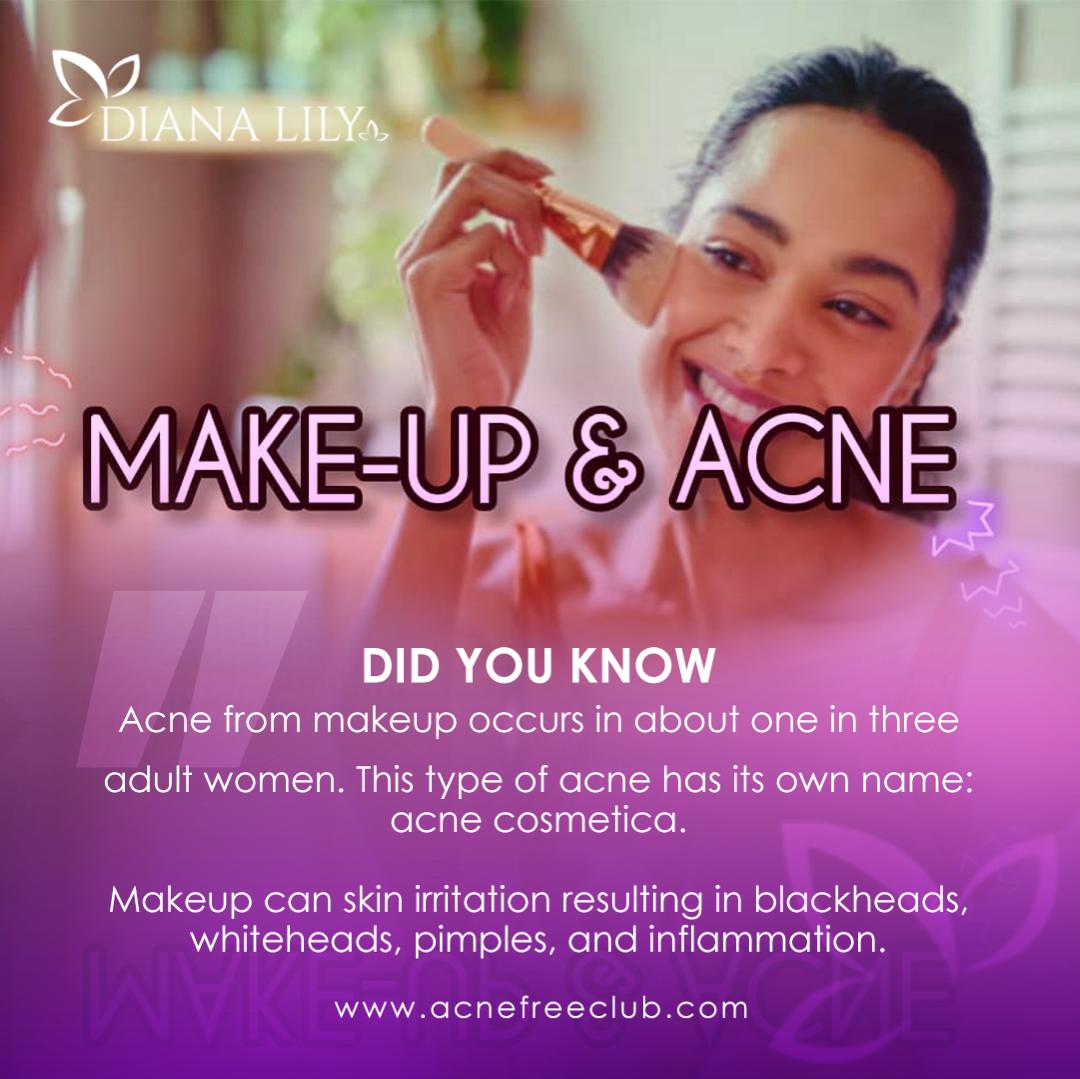When it comes to skincare, many women rely on makeup to enhance their natural beauty and boost confidence. However, makeup can sometimes trigger a specific type of acne known as acne cosmetica, which affects approximately one in three adult women. In this blog post, we’ll explore the connection between makeup and acne, discuss the causes, and share tips to help prevent makeup-induced skin problems.
What is Acne Cosmetica?
Acne cosmetica is a mild but persistent form of acne caused by the use of certain cosmetic products. Unlike traditional acne, which can result from hormonal changes or clogged pores due to excess oil, acne cosmetica develops gradually over time due to prolonged exposure to pore-clogging ingredients in makeup.
How Does Makeup Trigger Acne?
The following factors contribute to makeup-induced acne:
- Comedogenic Ingredients
Many makeup products contain ingredients like mineral oil, silicones, and artificial dyes that clog pores and trap bacteria, leading to blackheads, whiteheads, and pimples. - Skin Irritation
Makeup brushes and sponges, if not cleaned regularly, can harbor bacteria, dirt, and oil, causing inflammation and irritation on the skin. - Prolonged Wear
Wearing makeup for long hours without proper cleansing can suffocate the skin, creating an environment where acne-causing bacteria thrive. - Heavy or Waterproof Formulas
These products often form a thick layer on the skin, making it difficult for pores to breathe and exacerbating acne breakouts.
Symptoms of Acne Cosmetica
- Small, persistent pimples primarily on the cheeks, forehead, and chin.
- Blackheads and whiteheads around areas where makeup is applied frequently.
- Redness or irritation, especially after wearing makeup for extended periods.
Preventing Acne Cosmetica
The good news is that acne caused by makeup is preventable! Here are some steps you can take:
- Choose Non-Comedogenic Products
Look for makeup labeled “non-comedogenic,” “oil-free,” or “for sensitive skin.” These products are less likely to clog pores or irritate your skin. - Clean Your Tools Regularly
Wash makeup brushes, sponges, and other applicators at least once a week with gentle soap or a specialized cleaner to remove bacteria and buildup. - Remove Makeup Thoroughly
Never sleep with makeup on. Use a gentle makeup remover followed by a facial cleanser to ensure your skin is completely clean. - Limit Heavy Makeup Use
Avoid using heavy foundations or concealers daily. Opt for lightweight, breathable formulas whenever possible. - Hydrate Your Skin
Dry skin is more prone to irritation, which can worsen acne. Use a moisturizer suited to your skin type to keep it hydrated. - Patch Test New Products
Before introducing new makeup products into your routine, test them on a small area of your skin to ensure they don’t cause irritation or breakouts.
When to See a Dermatologist
If you’ve tried these preventive measures but still struggle with acne cosmetica, consult a dermatologist. They can recommend treatments like topical retinoids, salicylic acid, or other therapies to address your specific needs.
Conclusion
Clear skin doesn’t have to be harmed by makeup. By understanding the causes of acne cosmetica and taking proactive steps, you can enjoy the benefits of makeup without compromising your skin’s health. Remember, true beauty starts with healthy skin, so prioritize a skincare routine that works for you.
At Diana Lily, we’re passionate about empowering women to feel confident in their skin. For more tips on skincare and acne prevention, visit www.acnefreeclub.com.
Don’t forget to subscribe to our YouTube channel for more skincare and fitness tips!
Follow us on Instagram @dianalily_acnefreeclub and Facebook Acne Free Club for updates, inspiration, and expert advice.

